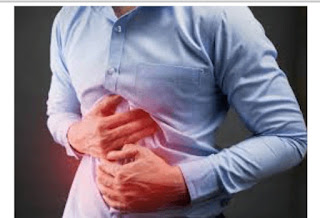DESCRIPTION:
Abdominal pain is pain that occurs between the chest and
pelvic regions.
Abdominal pain can be crimpy, achy, dull, intermittent or
sharp. It’s also called a stomach-ache.
CAUSES:
However, the main causes are infection, abnormal growth, inflammation,
obstruction (blockage), and intestinal disorders.
Infections in the throat, intestines, and blood can cause bacteria
to enter your digestive tract, resulting in abdominal pain.
These infections may also cause changes in digestion, such
as diarrhea or constipation.
Cramps associated with menstruation are also a potential
source of lower abdominal pain, but more commonly these are known to cause
pelvic pain.
OTHER COMMON CAUSES OF ABDOMINAL PAIN INCLUDE:
Constipation
Diarrhea
Gastroenteritis (stomach flu)
Acid reflex (when stomach content leak backward into the esophagus,
causing heartburn and other symptoms)
Vomiting
Stress
SYMPTOMS:
1.
FEVER
2.
INABILITY TO KEEP FOOD DOWN FOR MORE THAN TWO
DAYS
3.
ANY SIGN OF DEHYDRATION
4.
INABILITY TO PASS STOOL, ESPECIALLY IF YOU ARE
ALSO VOMITING
5.
PAINFUL OR UNUSUALLY FREQUENT URINATION
6.
THE ABDOMEN IS TENDER TO THE TOUCH
7.
THE PAIN IS THE RESULT OF AN INJURY TO THE
ABDOMEN
8.
THE PAIN LASTS FOR MORE THAN A FEW HOURS
9.
BLOATING
10.
GAS (FLATUS, FARTING)
11.
INDIGESTION
12.
DISCOMFORT IN THE UPPER LEFT OR RIGHT, MIDDLE,
OR LOWER LEFT OR RIGHT ABDOMEN
13.
DIARRHEA
14.
GERD(gastro esophageal reflex disease)
16.
CHEST DISCOMFORT
17.
LOSS OF APPETITE
More
serious symptoms include:
1.
serer pain
2.
bloody stools
3.
persistent nausea and vomiting
4.
unintended weight loss
5.
skin that appears yellow
6.
swelling of the abdomen
PREVENTION:
1.
EAT A HEALTHY DIET
2.
DRINK WATER FREQUENTLY
3.
EXERCISE REGULARLY
4.
EAT SMALLER MEALS
TREATMENT:
Treatment can range from medications
for inflammation, GERD, or ulcers, to antibiotics for infections, to changes in
personal behavior for abdominal pain caused by certain foods or beverages.
In some cases, such analyses of
blood, urine, and stool samples, CT scans, and endoscopy, may be required to
rule out or confirm a specific diagnosis, and surgery may be needed.
1.
Over-the counter pain relievers
2.
Antibiotic
3.
Low-dose antidepressants
4.
Change behavior, including eliminating of
certain foods or beverages that may be contributing to abdominal pain
5.
Surgery to remove intestinal blockages, hernia,
or infected organ.






No comments:
Post a Comment